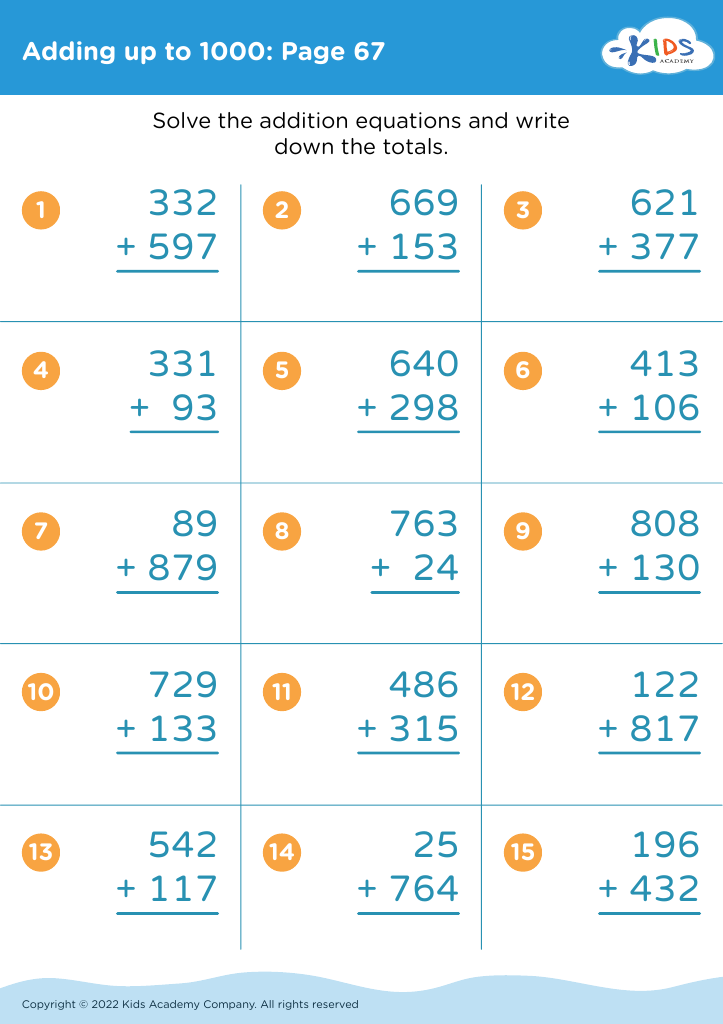Understanding multiplication Adding up to 1000 Worksheets for Ages 5-7
4 filtered results
-
From - To
Explore our engaging "Understanding Multiplication Adding Up to 1000 Worksheets" designed specifically for children aged 5-7. These thoughtfully crafted worksheets introduce the concept of multiplication in a fun and interactive way, helping young learners grasp the relationship between addition and multiplication. Each activity focuses on building foundational skills that encourage critical thinking and problem-solving. Children will enjoy colorful illustrations and challenging exercises that reinforce their understanding of numbers up to 1000, alongside essential multiplication concepts. Perfect for homeschooling or classroom use, these worksheets provide an excellent opportunity for kids to practice independently while boosting their confidence in math.
Understanding multiplication and addition, particularly when it comes to numbers up to 1000, is essential for children aged 5-7 as it builds a strong mathematical foundation for their future learning. At this age, children are developing their number sense, and grasping the concepts of multiplication and addition sets the stage for more complex mathematical operations later on, including division and advanced problem-solving skills.
Teaching young learners about multiplication helps them recognize it as repeated addition, fostering a deep understanding of numerical relationships and enhancing their mental math skills. Understanding these concepts promotes critical thinking, as children learn to manipulate numbers in varied ways, encouraging creativity in their problem-solving.
Additionally, achieving proficiency in addition up to 1000 cultivates confidence and independence in young learners. Mastery of these skills not only aids academic success but also equips children with essential life skills, such as budgeting and time management. For parents and teachers, facilitating this understanding can inspire a love for math, reduce anxiety around the subject, and set the groundwork for a lifetime of mathematical literacy. Engaging children in fun, practical activities and real-world scenarios can make these mathematical concepts more relatable and enjoyable.

















